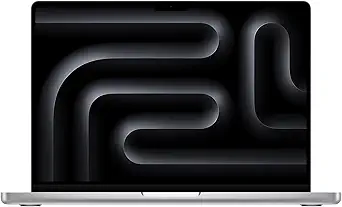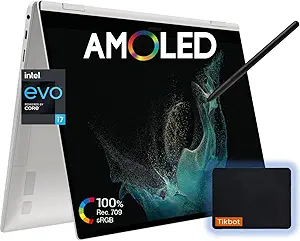In the vast arena of tech warfare, few battles are as fiercely contested as the showdown between Apple and Samsung laptops. These two behemoths of innovation and design have carved out distinct niches in the laptop market, captivating consumers with their cutting-edge features and unparalleled performance. As we delve into this clash of titans, we unravel the intricate tapestry of differences between Apple and Samsung laptops, seeking to discern which reigns supreme in the realm of portable computing.
Key Features Comparison
Product Selection
Apple and Samsung are two of the leading brands in the laptop market, each offering a diverse range of products to cater to different user needs. Apple's laptop lineup, known as MacBooks, includes the MacBook Air and MacBook Pro models, each available in different sizes and specifications. Apple's latest models feature the M1 chip, which is Apple's first chip designed specifically for Mac, delivering incredible performance, custom technologies, and revolutionary power efficiency. The MacBook range is known for its sleek design, high-quality Retina displays, and seamless integration with other Apple devices, making it a popular choice among professionals and creatives. On the other hand, Samsung offers a wide selection of laptops under its Notebook series, including the Notebook 9, Notebook 7, and Notebook 5, each designed to cater to different user requirements. Samsung's latest models feature Intel's 11th Generation processors and Nvidia's latest graphics cards, offering high performance for gaming and multitasking. Samsung laptops also come with QLED displays, known for their vibrant colors and sharpness, and some models offer 2-in-1 functionality with touchscreen capabilities. However, Samsung's product selection is more diverse in terms of price range, making it more accessible to a wider audience compared to Apple's relatively high-end pricing. Both brands offer high-quality laptops, but the choice between them often comes down to individual user needs and preferences.
Affordability
When it comes to the aspect of price, Apple laptops, specifically the MacBook series, are generally more expensive than Samsung laptops. The latest MacBook Pro, for instance, is priced at around $1,299 for the base model, which features an M1 chip, 8GB of RAM, and 256GB of SSD storage. On the other hand, Samsung's latest Galaxy Book Pro starts at $999.99, with an 11th Gen Intel Core i5, 8GB of RAM, and 256GB of SSD storage. Despite the higher price, Apple laptops are often praised for their build quality, innovative features, and seamless integration with other Apple devices. However, their high cost can be a barrier for many potential buyers. Samsung laptops, while not as high-end in terms of build quality, offer good performance and features for their price, making them a more affordable option for many consumers. It's also worth noting that while Apple has a more limited range of laptops, Samsung offers a wider variety of models at different price points, catering to a broader spectrum of consumer needs.
Reputation
Apple laptops, specifically the MacBook series, have a highly esteemed reputation in the laptop market. They are known for their sleek design, high-quality build, and the seamless integration of hardware and software. Apple's macOS is praised for its stability, security, and user-friendly interface. The latest M1 chip technology in the MacBook Pro and MacBook Air models has been lauded for its impressive performance and power efficiency. However, Apple laptops are often criticized for their high price point and lack of hardware customization options. The brand's reputation is also bolstered by its excellent customer service and the robust ecosystem of other Apple devices and services. On the other hand, Samsung laptops, such as the Galaxy Book series, also have a good reputation, particularly for their innovation and value for money. They offer a range of options from budget to high-end, providing flexibility to different user needs. Samsung laptops are equipped with the latest technologies like QLED displays and Intel’s 11th Gen Tiger Lake processors. They are also praised for their lightweight design and long battery life. However, Samsung's laptops sometimes fall short in terms of build quality compared to Apple, and their customer service is not rated as highly. Samsung's reputation is also somewhat overshadowed by its stronger presence in the smartphone and television markets.
Battery Life
Apple laptops, specifically the MacBook Air and MacBook Pro, are renowned for their impressive battery life. The MacBook Air, with the latest M1 chip, boasts up to 18 hours of battery life, while the MacBook Pro offers up to 20 hours. This is a significant advantage for users who require a laptop for extended periods without access to a power source. Apple's proprietary M1 chip is designed to be power-efficient, contributing to the extended battery life. However, Apple laptops are often more expensive than their counterparts, which may deter some consumers. On the other hand, Samsung laptops such as the Galaxy Book Flex and Galaxy Book Ion also offer commendable battery life. The Galaxy Book Flex claims up to 20 hours of battery life, and the Galaxy Book Ion offers up to 22 hours. Samsung laptops use Intel's 10th generation processors, which are designed to balance power consumption and performance. Samsung laptops are generally more affordable than Apple laptops, making them a good choice for budget-conscious consumers. However, the actual battery life can vary significantly depending on the usage, and some users have reported shorter battery life than the company's claims. Compared to other brands, both Apple and Samsung laptops offer longer battery life, making them a preferred choice for users who prioritize this feature.
Display
Apple laptops, specifically the MacBook Pro, are known for their Retina Display technology that provides a high-resolution display with vibrant color accuracy. The latest MacBook Pro models come with a 16-inch Retina Display that supports a resolution of 3072 x 1920 pixels, and it includes the True Tone technology that adjusts the white balance to match the color temperature of the surrounding light. The display is bright, with up to 500 nits of brightness, and supports the P3 wide color gamut, which is a feature that professionals in the creative field appreciate. However, the glossy finish of the screen can cause reflections in brightly lit environments, which can be a downside for some users. On the other hand, Samsung laptops like the Galaxy Book Flex feature a QLED (Quantum Dot LED) display, a technology that offers excellent color accuracy and brightness. The 13.3-inch and 15.6-inch models support Full HD resolution (1920 x 1080 pixels), and they include a built-in S Pen that can be used directly on the touchscreen. The QLED display is also capable of reaching up to 600 nits of brightness in Outdoor Mode, which makes it easy to use in different lighting conditions. However, despite the vibrant colors and high brightness, the resolution is not as high as that of the MacBook Pro's Retina Display. Additionally, while the touchscreen and S Pen are useful features, they might not be necessary for users who primarily use their laptop for tasks like typing or browsing the web.
Conclusion
In the battle of Apple vs. Samsung laptops, there is no clear winner, as both brands offer compelling options tailored to different preferences and priorities. Apple excels in design and integration, delivering a seamless user experience powered by its proprietary hardware and software ecosystem. Meanwhile, Samsung shines in performance and affordability, offering a diverse lineup of laptops designed to meet the needs of a broad spectrum of users. Ultimately, the choice between Apple and Samsung laptops depends on individual preferences, whether it's a preference for style and innovation or value and versatility. Whichever path you choose, both Apple and Samsung continue to push the boundaries of laptop technology, driving innovation and inspiring users worldwide. So, whether you're team Apple or team Samsung, the future of laptop computing looks brighter than ever, thanks to these two industry giants.



















